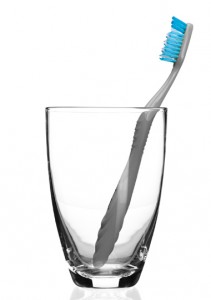Services / General Dentistry and Preventive Dental Care
Preventive Dental Care

As the saying goes, prevention is always better than cure. This is especially true in the field of dentistry and there is no perfect replacement for diseased tooth and gum tissue.
Phil is a strong believer in using his knowledge of preventive dental care to educate his patients on how best to look after their teeth. A healthy mouth free of tooth decay and gum disease is a reality and keeping your teeth for life is certainly a very achievable goal in this era of modern dental care. The bacterial infection that causes cavities (dental caries) and gum disease is manageable through an effective daily oral care regimen and a diet low in sugar and acid. Regular dental checkups are also very important to ensure any problems are identified and dealt with early.
The following links provided by the New Zealand Dental Association give very useful instructions on how to care for your teeth at home.
How to floss (yes you should do this at least once a day!!)
How to brush (twice a day for 2 minutes)
Tooth decay
Tooth decay is caused by bacteria in dental plaque, these bacteria thrive in acidic and sugar rich environments. With this in mind it is sensible to reduce the frequency with which you expose your teeth to sugary and acidic food and drink. Decay causing bacteria eat sugar and produce acid which dissolves the tooth surface creating a hole which will continue to progress until the decay is removed and the tooth is filled.
To reduce the chance of getting tooth decay you should minimise your sugar and acid intake, brush and floss regularly as instructed above and use a fluoride containing toothpaste. Fluoride is a safe and effective naturally occurring compound that is proven to strengthen teeth against decay. Spitting out your toothpaste but avoiding rinsing with water will help to keep more fluoride in contact with your teeth.
Fluoride becomes incorporated into our teeth as they develop and makes them more resistant to decay. Fluoride will also reverse early decay making corrective dental treatment unnecessary. If you are have experienced high levels of decay, try using a mouthwash containing fluoride, such as Colgate Neutrafluor at lunch time.
Dental Erosion and Tooth Wear
Another form of tooth destruction which is not very well publicised is tooth wear due to acid erosion and tooth abrasion. Acid in food and drink softens the tooth surface accelerating tooth surface loss. Another source of acid is our stomach. If stomach acid enters into our mouths (Vomiting and gastric reflux disease), this can result in rapid, serious tooth wear.
Tooth wear is often very difficult to treat so prevention is the best approach here. Minimising acid intake and seeking medical treatment for conditions such as gastric reflux and Bulimia can help to prevent serious tooth surface loss.
An increasing problem is tooth wear caused by acidic foods and especially drinks. Even diet drinks are acidic and will accelerate tooth wear. Anything with a pH of below 5.5 will dissolve tooth enamel. Diet coke has a pH of 3.39, Coca Cola has a pH of 2.53, pure water is pH 7. Another concern is citrus fruit. Fruit is good for us and should be consumed as part of a healthy diet, you do however need to limit the frequency of it’s consumption to minimise erosion. Orange juice has pH of about 4.6, and apple juice has a ph of about 3.3. These fruits also contain natural sugar which can cause tooth decay if eaten excessively.
The 3 main things to remember are
1.) Reduce the frequency of exposure to acid. Try to limit acidic food and drink intake to your main meal times.
2.) Reduce the duration of exposure, don’t hold acidic drinks in your mouth.
3.) Avoid acidic foods and beverages in between meals. ie drink water
Tooth grinding is another factor that will accelerate tooth wear. This most commonly occurs during sleep so you may not be aware of this habit. If you suspect that you grind your teeth you should strongly consider sleeping with an occlusal guard in place to protect your teeth from the destructive consequences of tooth grinding.
Gum Disease (periodontal disease)
Periodontal (gum and jaw bone) disease is the most common cause of tooth loss in adults. Research shows that over 80% of adults are affected by some form of gum disease, ultimately it is your gums and the bone beneath your gums that anchor your teeth in place. In short, you need to look after your gums if you want to keep your teeth for life!!
Periodontal disease is caused by bacteria in dental plaque. With time, this plaque hardens onto the tooth surface causing dental calculus (tartar) to form. Left untreated, calculus will accelerate periodontal disease. Calculus should be regularly removed from your teeth by your dental professional. A hygiene appointment every 6 months is usually required to keep your gums healthy.
Other factors which will accelerate gum disease are smoking and systemic illness’s such as diabetes.
Early signs of gum disease include swollen, red gums which bleed easily. This condition (gingivitis) is often painless and will progress as the diseased gum detaches itself from the tooth. As this happens the bone beneath your gum becomes diseased and will erode away until your teeth become loose. Advanced periodontal disease is very difficult to treat and will often result in tooth loss.
The best way to prevent periodontal disease is to develop a comprehensive daily oral care regime and present for regular professional cleans. Phil will usually complete these cleans at your check-up appointment. If you have large amounts of plaque and calculus on your teeth you may need an additional visit to have this removed.
Please contact our receptionist on 07 571 2860 or click here to enquire about an appointment with Phil.
